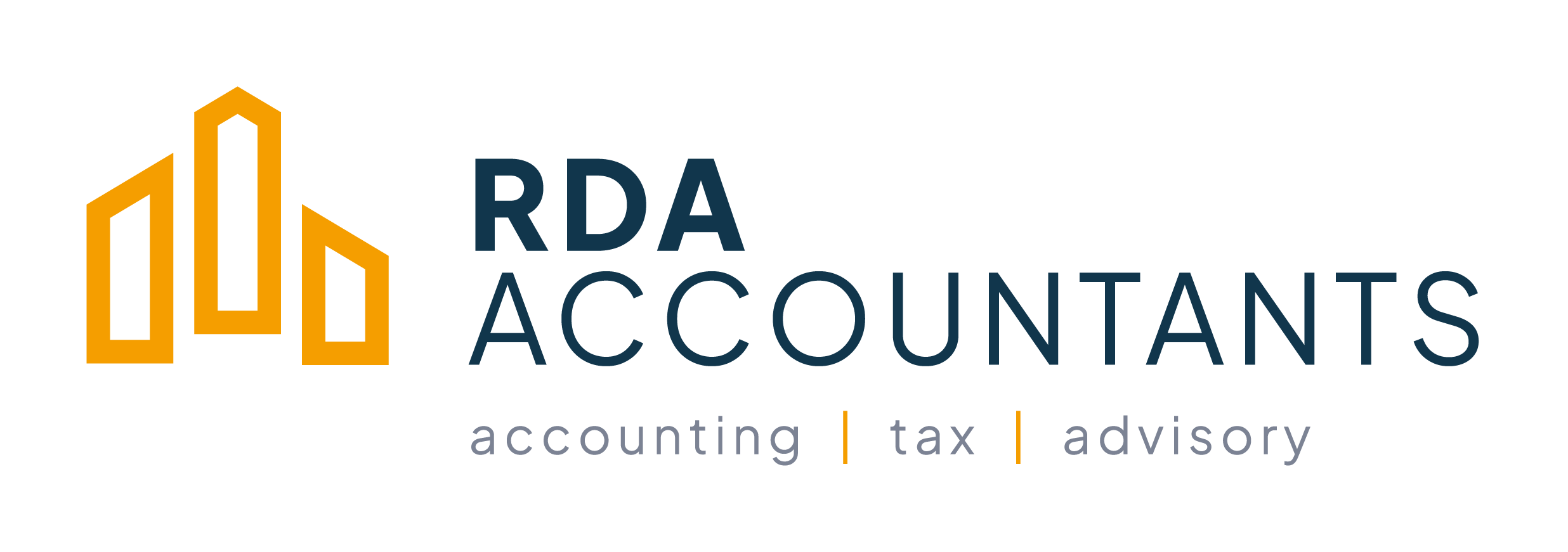When the time comes to consider selling your pharmacy, the preparation you undertake can...
The Ultimate Guide to Selling Your Pharmacy in Ireland
Selling a pharmacy in Ireland can be a daunting task, but with the right preparation and guidance, it can also be a lucrative opportunity. This comprehensive guide will take you through the entire process of selling your pharmacy, from understanding the Irish pharmacy market to navigating the sale process and fulfilling legal requirements.
Understanding the Irish Pharmacy Market
Before you start preparing your pharmacy for sale, it's essential to understand the current market landscape. The Irish pharmacy market is a unique and diverse one, with a wide range of factors that can impact its dynamics. In recent years, the Irish pharmacy market has experienced significant changes, with new regulations and increased competition impacting the industry. However, this has also created new opportunities for pharmacy owners looking to sell their businesses.
One of the most significant changes in the Irish pharmacy market has been the introduction of the Retail Pharmacy Business (RPB) license. This license is required for all pharmacies operating in Ireland and is issued by the Pharmaceutical Society of Ireland (PSI). The RPB license outlines the specific requirements that pharmacies must meet to operate legally in Ireland, including staffing and equipment standards, record-keeping requirements, and premises specifications.
Another trend in the Irish pharmacy market is the increasing importance of technology and digital solutions. Many pharmacies are now investing in modern software and tools to streamline their operations, enhance the customer experience, and increase profitability. This not only makes pharmacies more attractive to buyers but also positions them for long-term success in a rapidly evolving industry.
The Irish pharmacy market has also become more competitive in recent years, with many new players entering the market. This has led to increased pressure on pharmacy owners to differentiate themselves and stand out from the crowd. To achieve this, many pharmacies are now focusing on niche markets, such as natural health products or specialised prescription services, to attract a specific customer base and build brand loyalty.
Preparing Your Pharmacy for Sale
To maximise the value of your pharmacy and attract potential buyers, it's essential to invest time and effort in preparing your business for sale. Here are some key steps to follow:
Organise financial records
Before putting your pharmacy on the market, it's crucial to ensure your financial statements are up-to-date and accurately reflect your pharmacy's performance. This will enable potential buyers to assess the business's value and profitability and make informed decisions about a potential purchase.
It is important to have a clear understanding of your financial position, including both your assets and liabilities. This will help you determine your pharmacy's market value and set a realistic sale price. You should also ensure that your tax returns, income statements, and balance sheets are up-to-date and that all financial documentation is readily available.
Improve operational efficiency
Another critical aspect of preparing your pharmacy for sale is streamlining your operations and improving efficiency. Investing in modern technology and optimising inventory management can help you reduce costs, increase productivity, and improve customer satisfaction. This, in turn, will make your pharmacy more attractive to buyers and enhance its overall value.
To improve operational efficiency, you may need to invest in new software or equipment, such as automated dispensing systems or electronic health records. You should also review your staffing levels and ensure that you have the right people in place to deliver high-quality service to your customers.
Enhance the customer experience
In addition to improving operational efficiency, it's also essential to focus on delivering exceptional customer service and implementing innovative in-store initiatives to drive customer loyalty and satisfaction. A pharmacy with a strong customer base will be more appealing to potential buyers, and a reputation for outstanding service can command a higher sale price.
To enhance the customer experience, you may need to invest in training and development for your staff or implement new initiatives, such as loyalty programmes or personalised medication plans. You should also ensure that your pharmacy is clean, well-organised, and easy to navigate, with clear signage and effective merchandising.
Choosing the Right Business Broker
Hiring a professional business broker with experience in the pharmacy industry can significantly ease the process of selling your pharmacy. A skilled broker will assist you in finding potential buyers, negotiating the best possible sale price, and navigating the complex legal requirements involved in selling a pharmacy. To choose the right broker, consider the following factors:
Experience and knowledge of the industry
Look for a broker with a proven track record in successfully selling pharmacies in Ireland. They should have in-depth knowledge of the industry and the specific challenges associated with selling a pharmacy. A broker who specialises in the pharmacy sector will have a better understanding of the market dynamics and the regulatory environment, which will be invaluable in navigating the sale process.
Marketing expertise
Your broker should have a strong marketing strategy to showcase your pharmacy's unique selling points and target the right audience. They should have a comprehensive understanding of the market and be able to position your pharmacy effectively to attract potential buyers.
Reputation and references
Research the broker's reputation in the industry by reading online reviews and asking for references from previous clients. A reputable broker will have a strong network of contacts in the industry and will be able to attract potential buyers through their connections.
Fees and services
Compare the fees charged by different brokers and select one that offers competitive rates and comprehensive services. Keep in mind that the cheapest option may not always be the best choice, as a more experienced broker may be able to secure a higher sale price for your pharmacy.
Navigating the Sale Process
Selling a pharmacy in Ireland involves several steps, including:
Valuation
The first step in selling your pharmacy is obtaining a professional valuation to determine its market value. This will serve as a starting point for negotiations with potential buyers and will help you set a realistic sale price.
To obtain an accurate valuation, you may need to hire an independent valuer who specialises in the pharmacy industry. They will assess your pharmacy's financial performance, market position, and future growth potential to determine its market value.
Marketing
Once you have a valuation, work with your business broker to create an effective marketing strategy that highlights your pharmacy's unique selling points and targets the right audience. This may include advertising in industry publications, reaching out to potential buyers directly, or hosting an open house to showcase your pharmacy's facilities and services.
Negotiations
As potential buyers express interest in your pharmacy, engage in negotiations to secure the best possible sale price. Your business broker will play a crucial role in this process, providing expert guidance and advice on how to navigate negotiations and avoid common pitfalls.
It is essential to be transparent and honest in your negotiations and provide potential buyers with all the relevant information they need to make an informed decision. You should also be prepared to negotiate on price and other terms, such as the transfer of employees or lease agreements, to ensure a successful sale.
Due diligence
Once a buyer has been identified, they will conduct due diligence to verify the accuracy of your pharmacy's financial statements and confirm the business's legal compliance. This may involve reviewing tax records, employment contracts, and other legal documents to ensure that the sale is legitimate and above board.
To facilitate due diligence, you should ensure that all your financial and legal documentation is up-to-date and readily available. You should also be transparent and forthcoming with any potential issues or risks, such as legal disputes or regulatory compliance concerns.
Legal Requirements and Documentation
Selling a pharmacy in Ireland entails fulfilling various legal requirements and preparing the necessary documentation. To ensure a smooth transaction, pay attention to the following aspects:
Pharmacy registration
Confirm that your pharmacy is registered with the Pharmaceutical Society of Ireland (PSI) and complies with all applicable regulations. This includes ensuring that your pharmacy meets staffing and equipment standards, record-keeping requirements, and premises specifications.
If your pharmacy is not compliant with the PSI's regulations, you may be required to make changes or upgrades to bring it up to standard. This can be a time-consuming and costly process, so it is essential to ensure compliance well in advance of any sale.
Licenses and permits
Ensure that your pharmacy has the required licenses and permits, including the Retail Pharmacy Business (RPB) license and any necessary planning permissions. Failure to comply with these requirements can result in fines or legal action and can significantly impact the sale of your pharmacy.
You should also ensure that your licenses and permits are up-to-date and that you have all the necessary documentation to prove compliance. This will help facilitate due diligence and ensure a smooth transaction.
Employment contracts
Review your employment contracts to ensure they meet legal standards and that potential buyers are aware of any obligations related to employee benefits or ongoing disputes. This will help you avoid legal issues down the line and ensure that your sale is legitimate and above board.
You should also ensure that your employees are aware of the sale and any potential changes to their employment status. This will help maintain morale and reduce the risk of disputes or legal action.
Lease agreements
If your pharmacy operates on leased premises, review the lease agreement and confirm its transferability to a new owner. Buyers may request modifications to the lease terms or seek an extension, so be prepared to negotiate these matters to ensure a successful sale.
You should also ensure that your lease agreement is up-to-date and that you have all the necessary documentation to prove compliance. This will help facilitate due diligence and ensure a smooth transaction.
Sale agreement
Work with your legal advisor to draft a comprehensive sale agreement that outlines the terms and conditions of the sale, including the purchase price, payment terms, and warranties or indemnities provided by both parties. A well-drafted sale agreement can protect your interests and ensure a smooth transaction for all parties involved.
Your sale agreement should cover all aspects of the sale, including any contingencies or conditions precedent, such as regulatory approvals or financing arrangements. It should also include provisions for dispute resolution and indemnification, to protect you from any potential liabilities or claims.
Conclusion
Selling your pharmacy in Ireland can be a complex and time-consuming process, but by following the steps outlined in this guide and working with experienced professionals, you can navigate the sale successfully. By understanding the market, preparing your pharmacy for sale, choosing the right business broker, and fulfilling legal requirements, you can maximise your pharmacy's value and secure the best possible outcome for your business.
Remember to invest time and effort in preparing your pharmacy for sale, as this will pay off in the long run. With careful planning and a strategic approach, you can successfully sell your pharmacy in Ireland and reap the rewards of your hard work and dedication.



